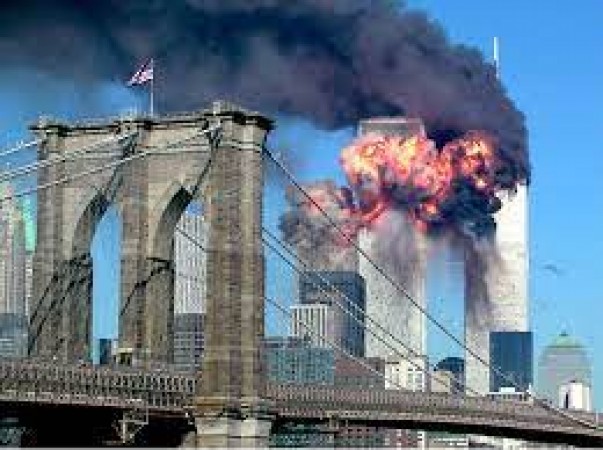
The September 11 attacks, also known as 9/11, were a series of coordinated terrorist attacks that took place on September 11, 2001, in the United States. This tragic event forever changed the world and left a profound impact on global security, politics, and the lives of millions of people. In this article, we will delve into the details of the September 11 attacks, exploring the events leading up to the attacks, the attack itself, and its aftermath.
Background and Context: The events of September 11, 2001, were a culmination of years of rising tensions between extremist groups and the United States. Osama bin Laden, the founder of the Islamist extremist group al-Qaeda, masterminded the attacks. Bin Laden and his followers were motivated by their radical beliefs, which called for a jihad against the United States and its allies.
Planning and Preparation: The planning and preparation for the September 11 attacks were meticulous and complex. The terrorists received flight training, studied security procedures, and carefully selected their targets. The aim was to cause maximum destruction and loss of life.
The Attack on the World Trade Center: On the morning of September 11, 2001, hijackers seized control of American Airlines Flight 11 and United Airlines Flight 175. These planes were intentionally crashed into the North and South Towers of the World Trade Center in New York City. The impact and subsequent fires caused both towers to collapse, claiming the lives of thousands of innocent people.
The Attack on the Pentagon: Simultaneously, American Airlines Flight 77 was hijacked and flown into the Pentagon, the headquarters of the United States Department of Defense. The attack resulted in significant damage to the building and claimed the lives of military personnel and civilians.
United Airlines Flight 93: United Airlines Flight 93, which was also hijacked, was believed to be targeting another high-profile location, such as the White House or the Capitol Building. However, the passengers on board bravely fought back against the hijackers, causing the plane to crash into a field in Pennsylvania, saving countless lives.
Immediate Aftermath and Rescue Efforts: In the immediate aftermath of the attacks, rescue workers, including firefighters, police officers, and volunteers, tirelessly searched for survivors amidst the rubble of the collapsed buildings. The world watched in shock and disbelief as the true magnitude of the tragedy became apparent.
Impact on National Security and Politics: The September 11 attacks prompted a significant shift in national security policies and the political landscape of the United States. The country underwent a series of changes to enhance security measures, including the establishment of the Department of Homeland Security and the enactment of the USA PATRIOT Act.
The War on Terror: The attacks served as a catalyst for the United States to launch the War on Terror. The U.S. military, in coalition with other nations, initiated military operations in Afghanistan to dismantle al-Qaeda and remove the Taliban regime from power.
The 9/11 Commission Report: To investigate the events leading up to the attacks and identify areas for improvement in national security, the 9/11 Commission was established. The commission's report provided critical insights into the intelligence failures and offered recommendations to prevent future terrorist attacks.
Commemoration and Remembrance: Every year on September 11, people around the world come together to remember and honor the victims of the attacks. Memorials and ceremonies take place, ensuring that the memory of the tragic events remains alive.
Conspiracy Theories and Controversies: The September 11 attacks sparked numerous conspiracy theories and controversies. Some individuals question the official account of events, leading to ongoing debates and investigations regarding alternative explanations.
Lessons Learned: The September 11 attacks served as a wake-up call for governments worldwide. It highlighted the need for enhanced intelligence sharing, improved airport security, and increased cooperation in combating terrorism.
The Global Impact of 9/11: The reverberations of the September 11 attacks extended far beyond the United States. Countries around the world reevaluated their security measures and joined forces to combat terrorism, recognizing that it was a global threat that required a united front.
Conclusion: The September 11 attacks in 2001 were a tragic and devastating event that shook the world to its core. The loss of innocent lives and the destruction caused were unimaginable. However, the aftermath of this horrific event led to significant changes in national security policies, political landscapes, and international collaborations to prevent future attacks.
The Treaty of Versailles in 1919, Ending World War I
Australian Family's Trip to Fiji costs a lot to their Girl
Rheinmetall Unveils Bold Move: Tanks Roll into Ukraine with New Armored Vehicle Plant